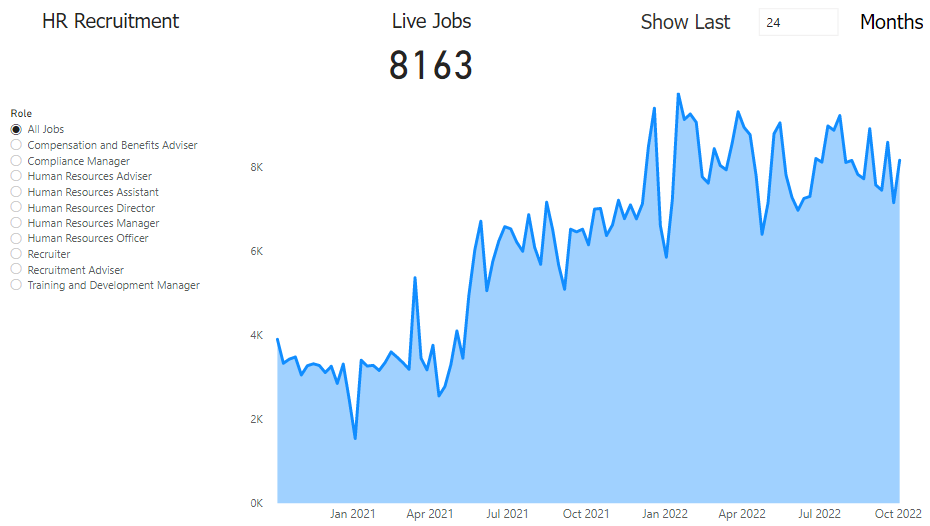Are HR Jobs safe in a recession?
The role of HR has truly evolved over the past 20 years
The HR function has grown to become one of the most influential departments at supporting the delivery of company profits and goals, harnessing the power of a company’s greatest assets; their people. Human Resources are no longer the department that just mitigates employment risks, viewed as the sacrificial lamb when a company enters hard times. In 1998, Dave Ulrich, Professor, Author, Management Coach and in our opinion all round HR genius, predicted the direction of travel for the HR profession, he must have had a crystal ball, focusing on the HR team delivering value to investors, customers and employees.
Sadly this thinking was not universal by the time of the financial crash, and subsequent recession, of 2007/2008 as Human Resources jobs were one of the largest casualties, with budget cuts and disproportional redundancies in comparison to departments such as IT and Finance. With the possibility of entering another recession in the coming months, will an economic downturn have the same hard felt effect on HR teams as previously?
Over the last 20 years the business world has woken up to the benefits of a highly productive, well trained and engaged team, driving for a common sense of purpose. There is hard evidence and data to show that productivity rises with a happy team, and that companies who attract the best talent are the most profitable and grow the fastest. Research by Oxford University has found that happy employees are 13% more productive. Professor of Economics and Behavioural Science at Oxford University’s Said Business School, Jan-Emmanual De Neve, states that while the link between happiness and productivity has often been discussed, their study provides the first causal field evidence for this relationship, and it is down to this investment in employee morale that HR teams are able to ensure employees are satisfied in their roles, therefore increasing retention, productivity, and ultimately the bottom line.
Great HR has become essential to company success and profitability
The HR department is now much more in line with IT, marketing and finance teams. So, when the call comes for costs to be cut as economic woes bite, will the axe fall on HR jobs?
The visibility of the HR team, who swiftly and adeptly had to navigate the iceberg ridden waters of the changes wrought by the Covid 19 pandemic, followed by the ‘Great resignation’ and the battle to engage remote teams, should ensure the status of the HR team has been elevated to ‘critical’.
Combine this with a job market where skills are in short supply, acquiring key talent is a challenge and with the rising cost of living making retention equally tricky; there has never been a more important time to invest in HR recruitment.
Is the demand for HR skills still strong?
Analysing data from over 11,000 direct company career pages, gathered weekly by the Ashdown Group, we take a quick dive into demand for HR skills over the past 12 months.
Demand for HR generalist managers climbed by 32% year on year (as at the end of July 2022), Public sector HR officer demand grew by 52% and HR Advisors in the private sector rose by 12%.
L&D saw a gradual decline, down 10% on the same time last year, talent acquisition and recruitment have also fallen 5%.
Broadly speaking demand for HR skills have remained strong, although we are starting to see a drop in recruitment for talent teams and L&D, both typically the first to feel the pain of any cuts.
Our opinion is that, should we enter an economic decline, spending will be further cut within learning and development and recruitment. Microsoft have recently laid off 100’s of talent acquisition and recruitment specialists and a number of US tech giants are putting the brakes on IT recruitment, including Netflix, Amazon and Uber.
Is cost cutting from within HR a smart strategy?
A 40 year study of businesses in the US by Stanford University, led by Jim Collins, showed that the most successful companies actually hired during a recession. Any headcount cuts generally fuel fear across existing employees, and concerns for job security usually shake out the best from your team first. With a skills shortage across many roles, businesses with strong balance sheets could take a longer term view, working with HR planning teams to establish skills gaps and fill these roles with newly available talent from competitors and businesses in a less strong position?
Companies that outperform their peers during an economic downtown have clearly defined strategies, with goals and measurements in place. With the right people in the right roles and the whole company on the same page, all working towards the same goals with a clearly communicated business strategy and direction.
There will likely be casualties within L&D and recruitment as markets slow but the depth of cuts are unlikely to be anywhere near as brutal as the recession following the financial crash of 2008. Those that recover fastest from the recession will be those that manage to maintain a high performing, motivated, engaged, well informed employee base and that’s the value of a great HR team. Conversely those businesses forced to cut budgets from people strategy are likely to be the slowest to recover and may lose their highest performers.
Coaching, motivating, supporting and communicating with employees to achieve their best during a recession requires a skilled team and that responsibility now sits squarely with HR. In a candidate starved job market, where attraction and retention are a challenge, the question should be, can businesses really afford to cut from the HR team at all?


